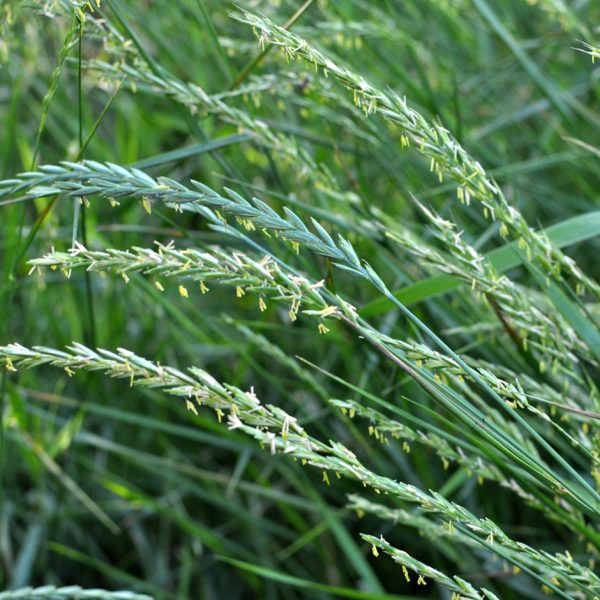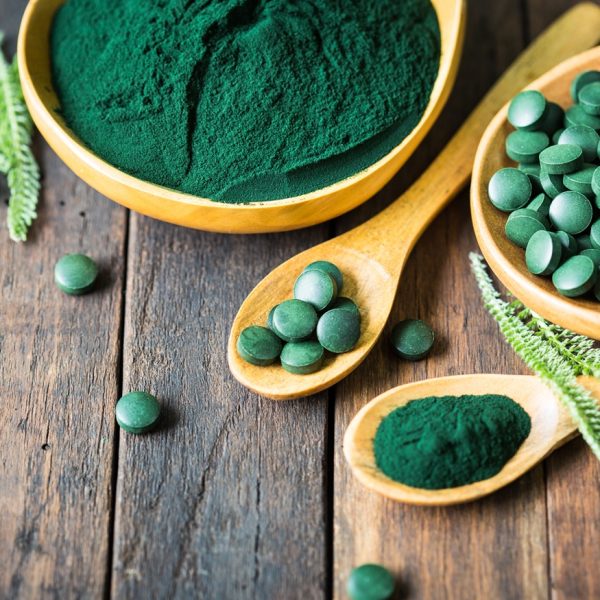Crohn’s disease is a complex inflammatory bowel disease, often presenting as abdominal pain, diarrhoea, and bloody stools.
Understanding Crohn’s disease

Crohn’s disease is classified under the spectrum of inflammatory bowel disease (IBD). Another inflammatory bowel disease in ulcerative colitis. Crohn’s disease is a chronic inflammatory disorder marked by persistent inflammation of the gastrointestinal tract. This complex disorder, characterised by unpredictable exacerbations and remissions, can have a profound impact on the quality of life of afflicted individuals (1).
New research has estimated that 1 in every 123 people in the UK are living with either Crohn’s or ulcerative colitis, meaning that over half a million people are living with IBD in the UK. These new estimates are almost double of the 300,000 that were previously estimated (1). The incidence of Crohn’s in the UK is increasing, and globally the UK is second only to the US in terms of percentage of the population living with IBD (2).
How does Crohn’s disease work?

The pathophysiology of Crohn’s disease involves a dysregulated immune response targeting the gastrointestinal mucosa (3). Chronic inflammation ensues, leading to transmural lesions, ulcerations, and structural alterations in the affected regions of the digestive tract. The causes of Crohn’s are not fully understood, but it is believed to result from an inappropriate immune response in genetically susceptible individuals triggered by environmental factors (4). Immune dysregulation, genetic predispositions, and environmental factors converge to initiate and perpetuate the pathological processes underlying Crohn’s disease (4).
Various environmental factors have been linked to Crohn’s, including smoking, diet, infections and stress, and there is evidence that the gut microbiome plays a role in disease development (5). Inflammation in the gut tissue is characterised by the presence of immune cells such as T cells, B cells, and macrophages, as well as the production of pro-inflammatory cytokines including TNF-alpha, IL-1, and IL-6 (5, 6). Immune dysregulation interacts with enteric antigen presenting microflora causing inflammation (7).
The commonest biological marker used to diagnose and monitor progression of IBD is faecal calprotectin. Calprotectin is a protein that is found in neutrophils and its concentration in stools increases when there is increased intestinal inflammation (8). This biomarker is therefore elevated when there is inflammation specific to the intestines.
Understanding the root causes
The causes of Cronh’s are largely unknown, however there is evidence to suggest the interplay between genetics and environmental triggers. Those most at risk of developing IBD have a genetic predisposition (9). Environmental factors, such as diet and the gut microbiome, modulate the immune response and influence disease progression. Smoking is considered a significant risk factor in developing Crohn’s disease (10). Other environmental factors such as diet, the use of anti-inflammatory drugs (NSAIDs) and antibiotics are associated with an increased risk of developing IBD (5).
Signs and symptoms
Primary symptoms of Crohn’s include abdominal pain, diarrhoea, and bloody stools. People can also experience frequent bowel movements, urgency to open the bowels and tiredness. Because of the persistent inflammation and diarrhoea, other common signs of Crohn’s are malabsorption and weight loss. Crohn’s can affect any part of the digestive tract, from the mouth to the anus. Crohn’s can sometimes cause perianal abscesses and therefore can present with perianal disease symptoms including pain and discomfort (11). Another less common symptom are mouth ulcers. Extraintestinal manifestations include joint pain, dermatological conditions, and ocular inflammation. (6, 12).
Herbal solutions

Herbal interventions for Crohn’s involve a nuanced integration of traditional knowledge, experience, and evidence-based approaches. Herbal treatment will have to be tailored to the individual, as each person is different and Crohn’s manifest slightly differently in each person. When choosing herbs, it is important to consider specific symptoms and the person’s constitution.
The main strategies are the following (13):
- Immune modulation
- Anti-inflammatory action, downregulating pro-inflammatory cytokines like TNF-alpha, leukotrienes, IL-1 and IL-6.
- Addressing intestinal dysbiosis
- Increasing soft fibre and mucilaginous plants
Immune-modulating plants and fungi such as echinacea root (Echinacea spp.) or reishi (Ganoderma lucidum) are useful in auto-immune disorders, as they help modulate the immune response (13, 14). They can also simultaneously down-regulate inflammation. Echinacea and reishi contain both polysaccharides and triterpenes. Polysaccharides are complex carbohydrates that exert powerful immunomodulating properties, by shifting the Th2 immune response to a Th1 response (14).
Fungi are good immune modulators, owing this action to the polysaccharides they contain. Fungal polysaccharides have an ability to contribute to a shift in the pattern of immunity in autoimmune conditions, shifting from a pro-inflammatory, Th2-dominated immunity to a cytotoxic, Th1 immunity, by increasing anti-inflammatory cytokines like IL-2 and decreasing pro-inflammatory cytokines like IL-4 (14). This can be helpful in Crohn’s disease, as herbal and fungal polysaccharides can decrease inflammation whilst improving immunity. There is in vivo and in vitro research showing the anti-inflammatory effects of reishi extract in Crohn’s disease (15).

Examples of anti-inflammatory medicinal plants that are relevant in supporting people with Cronh’s include turmeric (Curcuma longa), frankincense (Boswellia serrata), and ginger (Zingiber officinalis) (16). Both turmeric, rich in curcumin, and frankincense, rich in boswellic acids, exhibit potent anti-inflammatory properties, mitigating cytokine-induced inflammation (13). There is research showing how both turmeric and frankincense inhibit TNF-alpha, leukotrienes, IL-1 and IL-6 (13, 17). Ginger significantly inhibits the production of pro-inflammatory mediators such as TNF-alpha. Plants containing berberine such as Berberis vulgaris or Berberis aquifolium also inhibit pro-inflammatory cytokine IL-6 and leukotrienes, having an anti-inflammatory action specific to IBD (18). Plants rich in berberine tend to be bitter and these can make diarrhoea worse, so they should be used with caution in people presenting with very loose stools or diarrhoea. Aloe vera contributes to improving symptoms through anti-inflammatory and wound-healing effects, so some herbalists also use aloe to ease gut inflammation in patients with Crohn’s.
Addressing gut dysbiosis is increasingly becoming a more recognised strategy in treating people with Crohn’s, as alterations in the gut microbiome can impair intestinal barrier integrity. There is recent research explaining how gut dysbiosis is closely related to the pathogenesis of IBD, and there is an association between gut dysbiosis and Crohn’s (19). A probiotic strategy to balance the gut microbiome is important, including probiotics and herbs like garlic.
Demulcent and mucilaginous plants such as marshmallow root and leaf (Althea officinalis), plantain (Plantago lanceolata) or slippery elm (Ulmus fulva) confer protective and soothing effects on the inflamed gastrointestinal mucosa (13). When there is diarrhoea, astringent plants like Quercus robur or Agrimonia eupatoria can also be useful (13).
Holistic solutions

A holistic approach to Crohn’s disease encompasses lifestyle modifications and nutritional interventions. Mitigating psychological and emotional stressors is a key strategy to managing Crohn’s. Stress management strategies such as yoga, meditation or psychological therapy are relevant (20). Both physical exercise with its immunomodulatory effects, and adequate sleep contribute to overall wellbeing. Diet is a crucial factor in IBD. A gluten-free diet has been shown to improve symptoms, and many have identified lactose as a trigger food (13, 21). It is also advisable to exclude spicy foods, processed foods, alcohol, and specific trigger foods identified by individual patients from the regular diet.
During remission, it is recommended to follow a diet rich in vegetables, fruits and whole grains. However, during flare-ups it is important to avoid foods rich in fibre and to adopt a diet that focuses on easily digestible fibre sources, such as cooked vegetables. It is advised to avoid eating whole grains, for example opting for white rice over whole grains as it is easier to break down (22). Pre and probiotics play a crucial role in promoting gut health and maintaining gut microbial equilibrium. These can be beneficial for maintaining a balanced gut microbiome, contributing to the overall wellbeing of individuals with Crohn’s disease (23). Examples of herbs that address intestinal dysbiosis in people with Crohn’s include garlic, golden seal and slippery elm. Responsible use of these herbs is imperative as golden seal is endangered and slippery elm is a threatened tree — click on the herbs to read our articles on their sustainability status.
References
- Crohn’s & Colitis Foundation. 2022. “What is Crohn’s Disease?” [Online]. Available from: https://www.crohnscolitisfoundation.org/what-is-crohns-disease (Accessed January 19, 2024).
- Khan N, Abbas AM, Bazzano LA. 2013. Inflammatory bowel disease: prevalence, diagnosis, and management. Mayo Clinic Proceedings. 88(11):1322-1336.
- Petagna L, Antonelli A, Ganini C, Bellato V, Campanelli M, Divizia A, Efrati C, et al. 2020. Pathophysiology of Crohn’s disease inflammation and recurrence. Biology direct. 15(1):1-10.
- Khor B, Gardet A, Xavier RJ. 2011. Genetics and pathogenesis of inflammatory bowel disease. Nature. 474(7351):307-317. [Online]. Available from: https://www.nature.com/articles/nature10209 (Accessed January 19, 2024).
- Sartor RB. 2006. Mechanisms of disease: pathogenesis of Crohn’s disease and ulcerative colitis. Nature clinical practice Gastroenterology & hepatology. 3(7):390-407.
- Xavier RJ, Podolsky DK. 2007. Unraveling the pathogenesis of inflammatory bowel disease. Nature. 448(7152):427-434.
- Swidsinski A, Ladhoff A, Pernthaler A, Swidsinski S, Loening–Baucke V, Ortner M, et al. 2002. Mucosal flora in inflammatory bowel disease. Gastroenterology. 122(1):44-54.
- Bryce C, Bucaj M. 2021. Fecal Calprotectin for the Evaluation of Inflammatory Bowel Disease. American Family Physician. 104(3):303-304.
- Khan N, Abbas AM, Bazzano LA. 2013. Inflammatory bowel disease: prevalence, diagnosis, and management. Mayo Clinic Proceedings. 88(11):1322-1336.
- Birrenbach T, Böcker U. 2004. Inflammatory bowel disease and smoking: a review of epidemiology, pathophysiology, and therapeutic implications. Inflammatory bowel diseases. 10(6):848-859.
- Underwood JCE, Cross SS. 2009. General and Systematic Pathology (5th ed.). Churchill Livingstone/Elsevier.
- Ungaro R, Mehandru S, Allen PB, Peyrin-Biroulet L, Colombel JF. 2017. Ulcerative colitis. The Lancet. 389(10080):1756-1770.
- Bone K, Mills S. 2012. Principles and practice of phytotherapy: modern herbal medicine. Elsevier Health Sciences.
- Powell M. 2015. Medicinal mushrooms-A clinical guide. Mycology Press.
- Liu C, Dunkin D, Lai J, Song Y, Ceballos C, Benkov K, Li XM. 2015. Anti-inflammatory effects of Ganoderma lucidum triterpenoid in human Crohn’s disease associated with downregulation of NF-κB signaling. Inflammatory bowel diseases. 21(8):1918-1925.
- Ke F, Yadav PK, Ju LZ. 2012. Herbal medicine in the treatment of ulcerative colitis. Saudi journal of gastroenterology: official journal of the Saudi Gastroenterology Association. 18(1):3.
- Governa P, Marchi M, Cocetta V, De Leo B, Saunders PT, Catanzaro D, et al. 2018. Effects of Boswellia Serrata Roxb. and Curcuma longa L. in an in vitro intestinal inflammation model using immune cells and Caco-2. Pharmaceuticals. 11(4):126.
- Zhu C, Li K, Peng XX, Yao TJ, Wang ZY, Hu P, et al. 2022. Berberine a traditional Chinese drug repurposing: Its actions in inflammation-associated ulcerative colitis and cancer therapy. Frontiers in Immunology. 13:1083788.
- Liu S, Zhao W, Lan P, Mou X. 2021. The microbiome in inflammatory bowel diseases: from pathogenesis to therapy. Protein & cell. 12(5):331-345.
- Kaur S, D’Silva A, Shaheen AA, Raman M. 2022. Yoga in patients with inflammatory bowel disease: A narrative review. Crohn’s & Colitis 360. 4(2):014.
- Weaver KN, Herfarth H. 2021. Gluten‐Free Diet in IBD: Time for a Recommendation? Molecular nutrition & food research. 65(5):1901274.
- Crooks B, McLaughlin J, Limdi J. 2022. Dietary beliefs and recommendations in inflammatory bowel disease: a national survey of healthcare professionals in the UK. Frontline Gastroenterology. 13(1):25-31.
- Abraham BP, Quigley EM. 2017. Probiotics in inflammatory bowel disease. Gastroenterology Clinics. 46(4):769-782.































